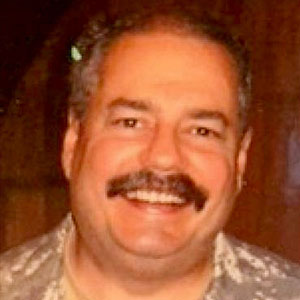We round up lawyers on the Obama NFA Trust NPRM
The bottom line appears to be that it undermines and complicates (but does not ban) NFA trusts. “Why do I care?” you may ask. “I don’t have an NFA trust, or an NFA gun, even.” Here’s why you ought to care: you may want one of these weapons some day, and the NPRM is designed to make it harder, and in some jurisdictions, impossible, based on the whim of a political police leader. Or your son or grandson may want one, only to have a county sheriff elected by a political machine or felon suffrage lock him out. “No sweat,” you counter, “our local Sheriff / Chief is a stand-up, pro-gun guy.” Well, that’s great (so is ours), but who’s going to be at that desk in 2030?
“How the hell would I know?” you counter, and we say, exactly. One excellent way to remove worry about his discretion is to remove his discretion. (The alternative path is eternal vigilance, which will be required anyway, but we’re belt-and-suspenders Weapons Men around here).
So what are the legal experts saying:
David Goldman, Esq., of Florida, whose law practice has created many of these trusts and partners with law firms across the nation to do so, has weighed in.
It looks like an attempt to remove the CLEO certification by the NFATCA which began in 2009 has backfired and now the ATF is wanting a modified CLEO signature, NICS check, fingerprint cards, photograph, certificate of citizenship for every responsible party of a fictitious entity. You can obtain a copy of the proposed rule here [.pdf].
Joshua Prince, Esq., of the Prince Law Firm in Pennsylvania notes an embuggerment in the proposal that most commenters have missed:
[I]t gets worse. “The NFATCA requests that the instructions on applications to make or transfer a firearm be revised so that they are consistent with those on a Form 7 (5310.12), Application for Federal Firearms License.” This means that the NFATCA requested the implementation of responsible persons for purposes of applications in the name of fictitious entities. And much to everyone’s surprise (sarcasm), the ATF agrees!
Prince’s comments deserve your attention; he works in this area of law. Tom Odom, Esq., also of Prince, has written some beneficial advice to would-be commenters on the NPRM. It’s good, as is the site he recommends.
Simply saying that you oppose a proposed rule is the least effective way to participate. Rulemaking is supposed to be about reasoned decision-making, so provide ATF with reasons for your views. Even when expressing your reasons, it is better to your own language rather than simply signing and sending in your own copy of a form letter.
To Tom’s advice, which he promises to extend in the future has already extended, and that he and Josh will continue to extend here, we would add some emphasis: never copy a recommended paragraph word for word. Paraphrase it, even if the pro’s words are better. Why? Because ATF and any other agency will simply discard any comment they think is part of a mass comment-writing push (unless it agrees with their intent). They have to go through the motions here, and are very unlikely to seriously consider any comment, but you must take commenting seriously (public comments become part of the legislative history of the rule, and may be useful to a court moving to overturn the rule in the future).
We have been hoping to hear from Evan Nappen, Esq., whose opinion in these matters we highly value (we’ve worked with him on a trust that is hanging fire due to would-be trustees’ dilatory responses on paperwork). So far he has not weighed in, but when he does his opinion may appear on his NH gun law website.
David Hardy, Esq., also has not posted an opinion, but when he does it will likely be at this link.
The NFATCA you see mentioned as the villain here is the National Firearms Act Trade and Collectors Association, a would-be NFA trade group that has been excoriated in the past for being far to cozy with ATF. The Association actually helped write the initial version of the NPRM, which traded off increased background checks for elimination of the Chief Law Enforcement Officer (CLEO) signoff requirement. (Here are Hardy’s comments on that original NPRM, which is no longer operative; note the cynical comments, borne out by events). The new language gives local, unelected CLEOs absolute veto authority over NFA weapons in their jurisdiction, whereas before they only had this veto on individually owned weapons. (In effect, the NPRM extends the reach of anti-gun municipal governments on NFA weapons).
Administration figures are citing, as the NPRM itself does, NFATCA’s support for the NPRM. But they don’t support the revised NPRM now; they got baited and switched, or their leaders, long rumored to be jammed-up ATF informants, bate-and-switched the rank and file. Their comments on their web page:
There is also a lot of consternation over today’s (08/29/2013) Presidential executive action item regarding trusts and corps. We have been keeping you up to date on this. It STILL must go through the official rule making process in order to become real. As soon as it hits the Federal Register, everyone MUST voice their opposition. Otherwise, fingerprints and photos will be required for responsible persons, however that gets defined.
These are Executive ACTIONS, not orders. It is the President saying “hey, I wanna get this done.” It is not circumventing the rule making process.
A slightly more reasoned version is in a long, but still extremely self-serving, letter by NFATCA honcho John K. Brown III on the NFATCA website (.pdf). The letter admits that the current NPRM started at NFATCA, but claims that ATF moved their cheese. Excerpt:
While the NFATCA® has acknowledged in our petition that there is concern regarding prohibited persons receiving firearms without background checks via trusts and corporations, the draft NPRM does not reflect any discussions or negotiations we have had with the Federal Government regarding same. We did not support or advocate for the efforts of the Executive Branch that were recently published as the proposed NPRM. The proposed NPRM is being used as a political expedient to address areas of negligible concern. The Executive Branch proposals unduly burden the law- abiding public, will restrain lawful commerce and bury an already overwhelmed agency with an administrative infrastructure that will not serve the public safety interest.
The NFATCA® supports the elimination of the CLEO signature requirement. The NFATCA® is willing to engage with DOJ/ATF and the Executive Branch to investigate reasonable, effective and manageable approaches to preventing prohibited persons from acquiring firearms. We cannot and will not support the NPRM in its current form. We will vigorously challenge this NPRM when and if it is published during the mandatory public comment period required by the Federal Rule Making Process. The NFATCA® urges all of its members and the entire firearms community to do the same.
We welcome Mr Brown, however belatedly, to the opposition to ATF’s creeping encroachment on gun rights. But he can’t please both his ATF masters and the NFA community. He’s going to have to choose sides.
We note, as we did above, that publicly commenting on this “fix is in” NPRM which proceeds with Presidential force will have the approximate effect of whizzing into a hurricane. But we’re all going to do it anyway, right?
We don’t find NFATCA trustworthy, so we’re not members. YMMV.
One thought on “We round up lawyers on the Obama NFA Trust NPRM”

Kevin was a former Special Forces weapons man (MOS 18B, before the 18 series, 11B with Skill Qualification Indicator of S). His focus was on weapons: their history, effects and employment. He started WeaponsMan.com in 2011 and operated it until he passed away in 2017. His work is being preserved here at the request of his family.

Pingback: We round up lawyers on the Obama NFA Trust NPRM | The Gun Feed